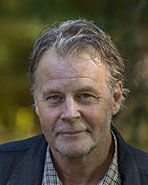Press release -
Increased influence for tenants generates greener cities
Several new studies show that allowing tenants to manage their own garden, or their own building and its surroundings boosts learning and builds commitment to environmental and climate issues. “Urban commons may contribute to the transformation into a fossil-free society,” says Johan Colding, professor in environmental sciences at University of Gävle.
Researchers in urban development at University of Gävle advocate for new laws regarding stewardship that would give residents the incentive to influence their own close surroundings.
There are many successful examples of such transformations in stewardship in Europe and in the US. In Berlin, there are parks that are managed by interest groups and people living nearby.
Urban commons may play a crucial role in the transformation towards a fossil-free society. For instance, regarding renewable energy, tenant-owner associations can install solar energy, and within the sharing economy, co-working spaces can be vital. A group of residents can manage common spaces, like tenant-owner associations manage their common property.
”People want change”

“We want to create this opportunity because people want change. Municipalities and local administrations must promote this development. Something happens to people, especially to children, when they start doing something with their hands. Such creative power activates learning processes about, and commitment to, environmental and sustainability issues,” Johan Colding says.
A chance to permanently break the cycle of exclusion
Urban commons managed by local groups of people can also bring life to areas of social exclusion and, importantly, the residents will be crucial in such a process. Currently, such areas may be sterile deserts where people live in isolation, deprived of any opportunity to do something about their own environment.
“Imagine what a joint project that involves contacts with other people can do. It may break a cycle of exclusion permanently.”
The researchers envision multiple kinds of diversity in the future. Each neighbourhood will create a unique environment with specific types of plants and exciting new solutions with locally adapted energy systems.
“People will start learning about environmental and climate issues, we know that. Moreover, such urban commons create meeting places where people from different cultures can exchange knowledge about seeds, crops, flowers, and share their experiences. Conversations and physical meetings help create the social capital that is so important today,” Johan Colding says.
Text: Douglas Öhrbom
Scientific article Pdf, 330 kB.
------------------
The research on Urban Common is linked to the Fairtrans research programme where University of Gävle participates. It is co-funded by Mistra and Formas,
The programme aims to use the experiences and commitment of civil society to facilitate and accelerate a fair climate transition which is in line with the goals of the Paris Agreement and Agenda 2030.
The researchers in the Urban Commons programme are part of the strategic research area for sustainable urban development at University of Gävle
------------------
Johan Colding, professor in environmental sciences and research coordinator, Urban Commons, University of Gävle
Phone: 08- 673 95 39
E-mail: johan.colding@hig.se
Stephan Barthel, professor in environmental sciences, University of Gävle, joint programme co-director, Fairtrans.
Phone: 076-360 57 05
E-mail: stephan.barthel@hig.se
Topics
- Environment, Energy
Categories
- the cycle of exclusion
- university of gävle
- urban commons
- renewable energy
- coworking spaces
- johan colding
- research
- stephan barthel
- environmental science
Education and Research at a Scenic Campus.
The University of Gävle has approximately 17 000 students, more than 50 study programmes and second-cycle programmes, about 1 000 courses in humanities, social and natural sciences and technology.
Research Profiles
Built Environment and Health-promoting Working Life are the general research profiles of the higher education institution. Important parts included are Spatial Planning with a specialisation in Sustainable Built Environment and Musculoskeletal Disorders with the purpose to prevent work-related injuries. In 2010, the higher education institution received permission to carry out third-cycle programmes in the profile area of Built Environment.
The higher education institution has applied for permission to carry out third-cycle programmes in technology, humanities and social sciences.
